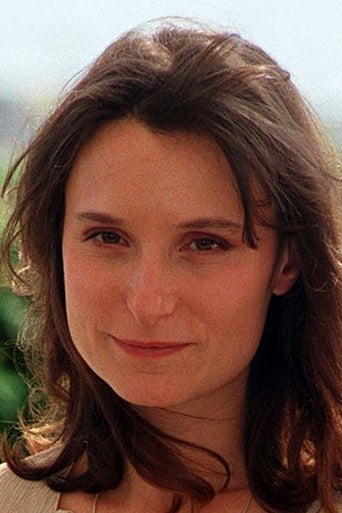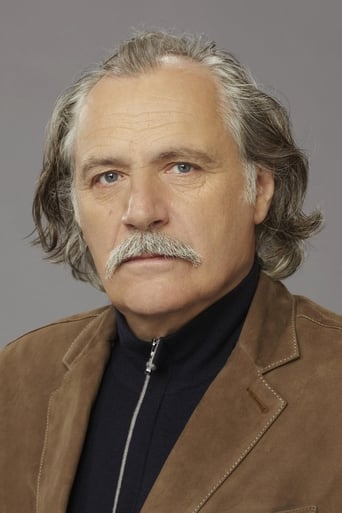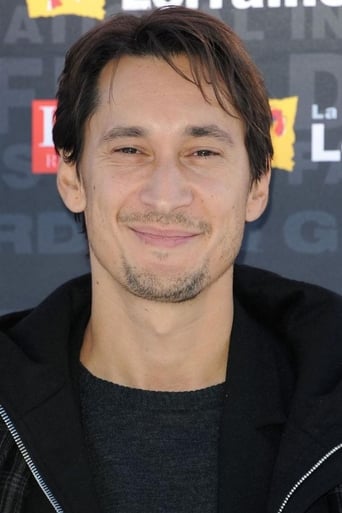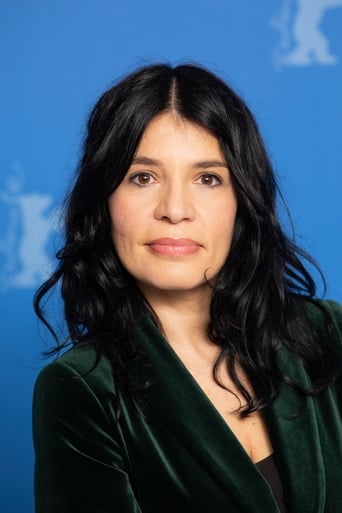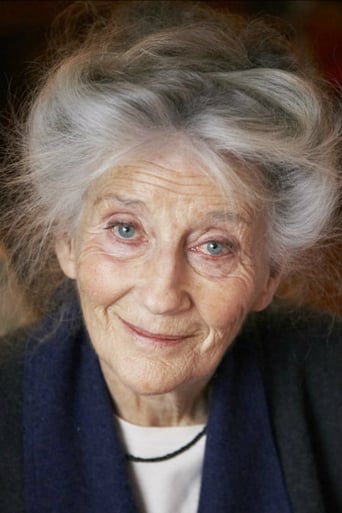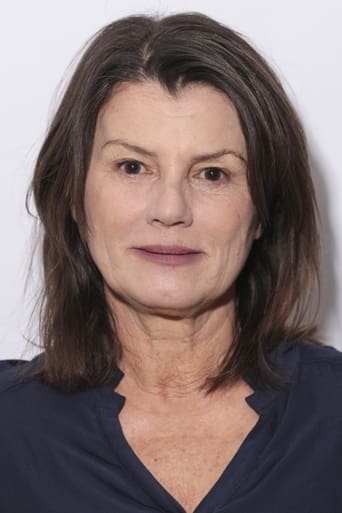Gutsycurene
Fanciful, disturbing, and wildly original, it announces the arrival of a fresh, bold voice in American cinema.
KnotStronger
This is a must-see and one of the best documentaries - and films - of this year.
Hadrina
The movie's neither hopeful in contrived ways, nor hopeless in different contrived ways. Somehow it manages to be wonderful
Quiet Muffin
This movie tries so hard to be funny, yet it falls flat every time. Just another example of recycled ideas repackaged with women in an attempt to appeal to a certain audience.
Lee Eisenberg
When I watched Milcho Manchevski's "Before the Rain", I thought that it ended awkwardly: it seemed that the segments weren't fully tied together. But I understand that the idea is that they could be in any order, confirming the spray-painted phrase "the circle is not round": the overshadowing scenarios go backward and forward in a cycle. The cycle here is political turbulence and fated relationships.I don't know if I would go so far as to call the movie one of the greatest ever made, but it still hits you like a kick in the gut. I recommend it. Outstanding performances from Katrin Cartlidge (the reporter in "No Man's Land"), Rade Šerbedžija (one of the gangsters in "Snatch") and Phyllida Law (Emma Thompson's mother).Another good movie from Milcho Manchevski is "The Great Water", about an orphanage in post-WWII Macedonia.
ecmelton-186-105049
Before the Rain is a film composed of three loosely interconnected episodes Words, Faces, and Pictures. All of these segments are dealing with the influence of the Bosnian War in Macedonia, and the unintended consequences war, especially racially motivated war, can have on people's lives. The first segment called Words takes place at a picturesque Macedonian monastery located atop a mountain.The cinematography is beautiful. There are lush green gardens, mountain ranges, and a vibrant sky with oversized and exaggerated features. Within the monastery itself there are lingering shots on pre- Renaissance paintings and the architecture of the compound. Words is undoubtedly the most visually stimulating of the episodes. The second segment, Faces, is odd when compared to the first and third. It doesn't take place in Macedonia, instead it is set in London and is entirely in English whereas the other segments are in Macedonian or Albanian with subtitles. It is also the weakest episode in the movie. The story is less interesting and maybe even a little boring, as it deals with a woman coping with an inconvenient pregnancy and her love for the man she has been cheating on her husband with, which is much less compelling than the creeping threat of bigotry and war that the rest of the movie focuses on. The cinematography is not very good is this section either; instead of the vibrant Macedonian countryside, Faces just takes place in a dirty city and lacks any of the interesting or stylized visuals that can be found in Words or Pictures. It also has the weakest links to the other segments. The only connection to the first segment are some photos of Kiril and Zamira that were taken after Zamira's death. These are only briefly seen and have no impact on the story. Because the link is so flimsy it would be easy to forget about these photographs or just discount them. If a person did that they might think that the first segment actually happened last and the rest of the film was just a flashback. The filmmakers clearly wanted a more complicated explanation to the films continuity, so by making it so easy to ignore certain details, they've undermined their own ideas. The only interesting detail is that Katrin Cartildge, who plays the protagonist in this episode would play a nearly identical journalist character who is also caught up in the Bosnian conflict when she appeared in No Man's Land seven years later. The third and final segment, Pictures, is the strongest of the three. It is the only segment that successfully contains story elements from the other two episodes, bringing in Aleksandar who was introduced in the Faces as the protagonist and giving the backstory of Zamira before the events of Words. It is the section of the film that creates the most tension and has the most emotional resonance. This segment also features several apparent homages to classic American Westerns. The scene where Aleksandar is riding a bicycle while whistling is reminiscent of the bicycle scene with Paul Newman from Butch Cassidy and the Sundance Kid, and when Aleksander is going to his cousin's barn to help birth the lambs he is framed in the darkened doorway almost identically to the way John Wayne is framed in The Searchers. When Aleksandar first walks up to his old house the camera is at a low angle focusing on his destroyed house and roughly constructed fence as Aleksandar walks into frame from the left with the sun setting in the background. There are similar shots in Clementine and the Grapes of Wrath, both John Ford movies as well. There is even a moment where Aleksander gives a Zippo lighter to the father of former girlfriend, noting that they are often used in American movies. This reveals that the director has seen enough American films to know the minute detail of what kind of lighters are often used, so it is reasonable to assume that he would intentionally include the other references because he is a fan of the movies they came from. Aside from the individual stories the movie's big selling point is the way it plays with the ideas of time and continuity. In the second segment there is graffiti on a London wall that that says, "Time Never Dies, The Circle is not Round." This is also the tagline of the movie, and sums up the nonlinear approach the movie takes. Before the Rain came out in 1994 the same year as what is likely the most famous example of nonlinear storytelling, Pulp Fiction, but Pulp Fiction's approach is much different than this movie. While the scenes and story segments are out of order in Pulp Fiction they could be edited into a linear movie without any real contradictions. Before the Rain wants to emphasize these contradictions and make a story that could never be told in a strictly linear manner. The point of doing this seems to be to make a statement about the vicious cycle of war. How things mindlessly repeat over and over for no reason, accomplishing nothing. Particularly it deals with the way these ideas pertains to the Bosnian War. The film characterizes the war as being meaningless and motivated by prejudice. It's interesting to note that of the three major deaths in the movie, none of the three killed were soldiers, none were actually involved in the conflict, and in the case of Zamira and Aleksandar they are killed by their own family members. At no point in the movie does anyone successfully kill their "enemies." They only succeed in killing bystanders or the people they would claim to be fighting to protect. This seems to be the core idea of the movie.
Armand
it is a film about the dust of words. about power of self definition. about death. and hate. about courage. and a deformed universe. each character is letter of a testimony. each testimony is another cold circle of ash.and nothing else. a monk, a girl, a photographer. a village as scene of a profound crime. sure, it is slice from a war. but this war has not end. it is expectation, desire, ladder. a seed as demolition of another old order. for this cause the film is touching and impressive. because it is clear. and honest. because is a picture. the places, the dialogs, the borders of circles are only shadows of events. three stories. and the cruel silence. that is all.
billcr12
Before the Rain has a similar format to Babel, with three separate stories which come together at the end. In the first, a young monk has taken a vow of silence and is protecting Zamira, an Aobanian girl on the run from the mob. He leaves the monastery and travels throughout Macedonia with her, attempting to escape.The second chapter involves a photo editor in London, having to choose between her husband, Nick, and a war photographer, Aleksandar. She gets caught up in a series of tragic events, beginning with a shoot out at a restaurant. The third segment ties the first two together through somewhat confusing flashbacks, and one scene, in particular is a definite timeline mistake. I sent an email to the director, and he says that it was intentional. Poetic license was is reasoning. The movie is a violent but realistic depiction of the war in the former Yugoslavia. There are no winners, only victims of another stupid and pointless conflict. Before the Rain is an excellent drama.

